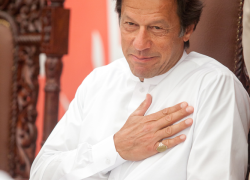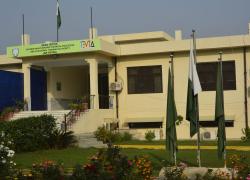The 05 key challenges confronted by the Ph.D. scholars
Doing PhD is not cumbersome, it is rather, time-consuming. One need, not to be really a genius, an ordinary, mediocre student like me can comfortably accomplish the goal. However, a little smart work, persistence, consistency and self-motivation will serve the purpose.
I have observed, very often, very ordinary people do it more efficiently. On the other hand, I have seen the best and brightest, utterly failing. Each Ph.D. scholar has his/her own story of success and failure. I have my own to tell.
During the course of my doctoral studies, whenever I came across difficult times and finding no one for genuine guidance, counseling and direction, I used to make a commitment with myself that if I ever finished with my PhD, I would try my level best to help others so that they may be able to complete their Ph.D. studies swiftly, timely and efficiently.
Objective
In this blog, I will share my experiences with the novice Ph.D. scholars; how they can complete their PhD studies, in time. The aim is to give useful insight to the students about the mistakes I committed during the course of my Ph.D. studies so that they do not repeat it. At the same time, this article will offer some helpful instructions for the scholars, especially, on those areas which I did fantastically well, so that they may learn about those as well.
Introduction
The journey of doctoral studies used to span over a period of four to five years, on the average which is sometimes extended up to eight years and even beyond that, in some cases. During the course of this tedious journey, on certain occasions, sticky patches used to come about. At times, the doctoral candidates feel really baffled, disheartened and sometimes totally collapsed and ironically, at that critical moment there is no proper counseling or guidance happened to be available to them. Hence, a great majority of the scholars leave their Ph.D. studies incomplete. Some of the challenges confronted by the scholars while choosing a research topic have already been discussed at length. Here, I would deliberate, first, upon those factors which cause unnecessary hiccups in the swift completion of Ph.D. studies as listed below:
- Time management
- The bureaucratized research
- Lukewarm response from the supervisor
- Unrealistic expectations from the supervisor
- Frequent distractions
These important areas are discussed here at length:
1. Time management
The doctoral students, for all practical purposes, are not full-time professional scholars, in this part of the world. They, generally, do not have much time to pursue their PhD studies wholeheartedly and diligently. Most of them are employed, whole time or part-time, sometimes performing multiple jobs at the same time. The prime time of their higher studies is devoured by the job-related responsibilities. Almost 70% of the doctoral candidates, as far as I know, are having full-time jobs and they have no other option but to carry-out their studies alongside their jobs as they cannot avail study leave for the purpose, either.
Apart from this, they have diverse socio-culture roles to play in the closely-netted joint family system. In this scenario, during the course of doctoral studies, time management becomes critically important for the student as it reaches a whole new level. Time management is all about the effective and efficient use of available time. It is the ability to plan and manage; how you spend the hours in your day to effectively accomplish your goals. The scholars will not only have lectures to attend and assignments to complete, but they will also have to make time for their research work. For instance, independent studies, which requires an extended period of time in the data collection, analyzes, writing the manuscript and attending seminars related to your research area. Time management is rather a more practical thing rather than theoretical. While organizing a workshop, I invited a guest speaker to deliver a lecture on “effective time management” but very unfortunately the speaker reached the venue, late.
2. The bureaucratized research
Universities are academic bodies essentially need to be free from bureaucratic red-tape in its governing system, subsystems and processes. Nevertheless, bureaucracy is thriving in our universities which have deleterious consequences for research, inventions and innovations. The irksome processes, procedural knots and inadvertent delays, at every stage of the research related business not only vitiate creativity but also hamper the research culture to flourish.
The process of approval of the research proposal and dissertation is very cumbersome. Various people, multiple administrative sections, and several committees are involved in it. The synopsis of the candidates are routed through statutory bodies such as doctoral committee and Boards of Advance Studies & Research before its approval and if the things really move fast, it roughly takes more than a year before its formal approval.
Similarly, the process of approval of the dissertation is even clumsy. It consists of various stages of evaluation. Usually, it is undertaken in two stages, internal (at a national level) and external (at the international level). In my university, it is done in three stages. First stage at the local (university) level, then internal and then external. From the date of submission of the thesis by the scholar to the submission of changes incorporated by the scholars as per instructions of the examiner, each stage roughly takes six months. In my case, my PhD thesis, although was expediently evaluated by the external examiners (Professor Dr. Stephen Procter, Alcan Chair of Management, Newcastle University, Business School, UK and Dr. Bahaudin G. Mujtaba, Professor of Management , Nova Southeastern University, US) but took more than 6 months time at the local level, taking more than a year time, as a whole. Hence, this is one of the prime reason for the inadvertent delay in the whole process.
3. Lukewarm response from the supervisor
The role of a supervisor or an advisor is critical in the timely completion of Ph.D. studies. Many scholars often find faults with the supervisor for his/her lukewarm response. The candidates, most of the time, grumble about the extraordinary engagements of the supervisor. Sometimes, the sarcastic approach of the supervisor is blamed for the undue delay in early completion of the dissertation. This is in fact, not without reasons. The supervisors are human beings and remain too much busy with their teaching, multiple research assignments, supervision, managerial issues and family life. Hence, the scholars should choose a supervisor very prudently, to nip such issues in the bud.
4. Unrealistic expectations from the supervisor
The student- supervisor relationship is of utmost importance in the whole scheme of the things. Sometimes, the students make selection of a supervisor which does not suite to their personal chemistry. Besides, the students, circumstantially, attach a very high level of unrealistic expectations from their supervisors. This, again, goes against the scholars and ultimately delays the whole process.
5. Frequent distractions
With a peculiar social, cultural and economic setting, the scholars alongside his/her Ph.D. studies have not only to perform multiple jobs but also have to shoulder various family-related responsibilities. In this backdrop, there is a strong possibility that they may get easily distracted and lose momentum. This is very important that they keep focused put themselves quickly back on the track, improve their level of concentration and boost their motivation.
In the absence of proper guidance, mentoring and counseling, I feel compelled to give them some useful tips in “How to complete your Ph.D. quickly?” so that they can make excellent use of their time and remained focused for the rest of their studies so that their hard work of the last couple of years do not get wasted.


















